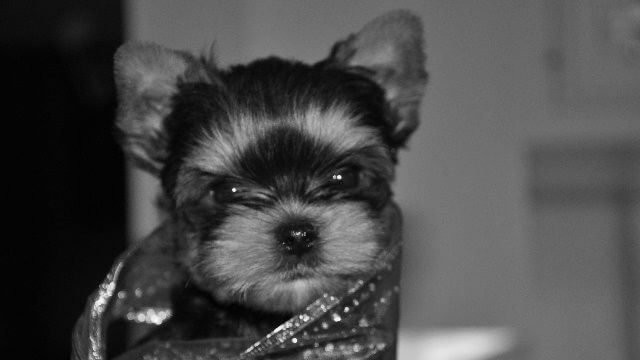

Home » Meet The Breeds » Yorkshire Terrier » Page 3
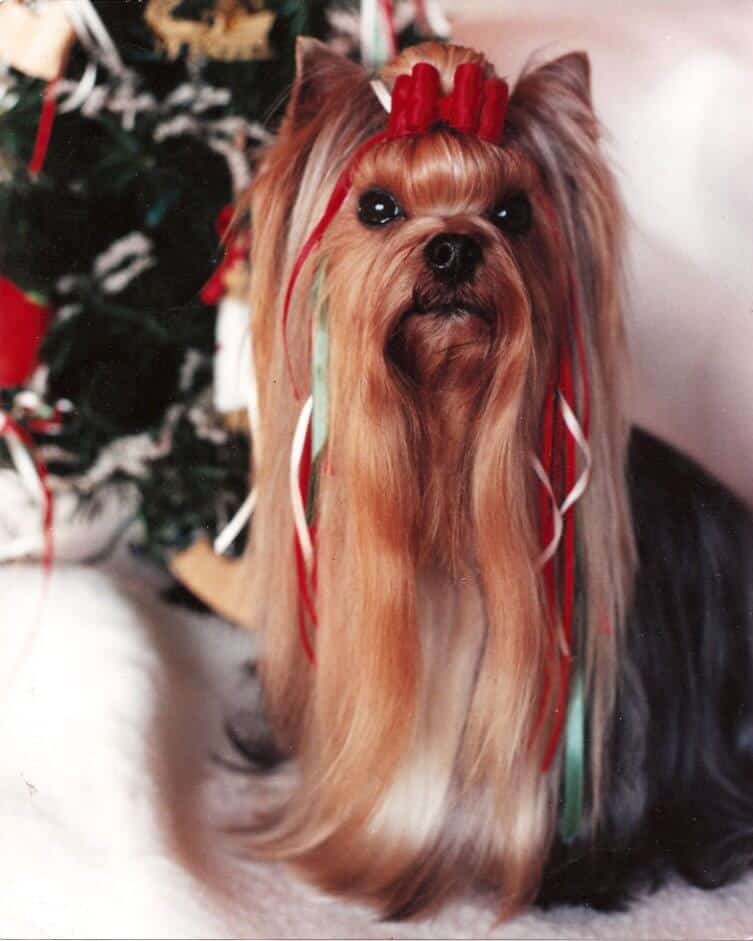
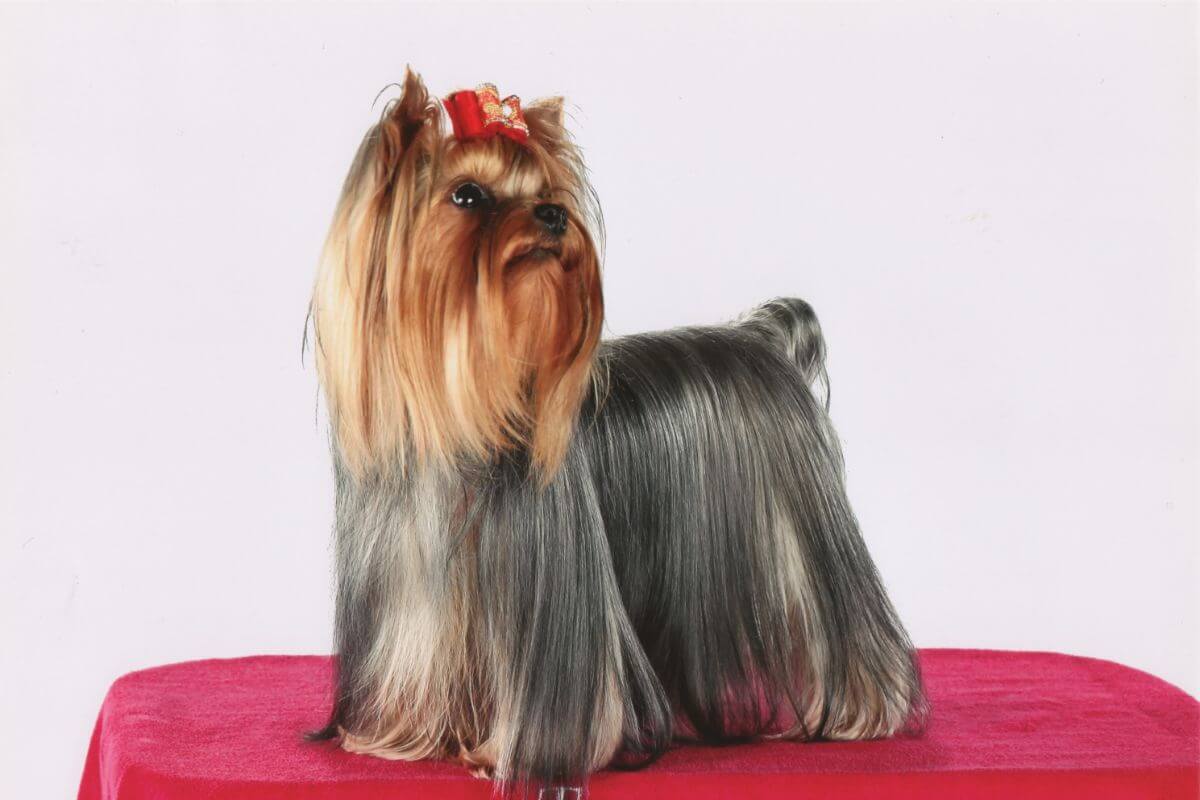
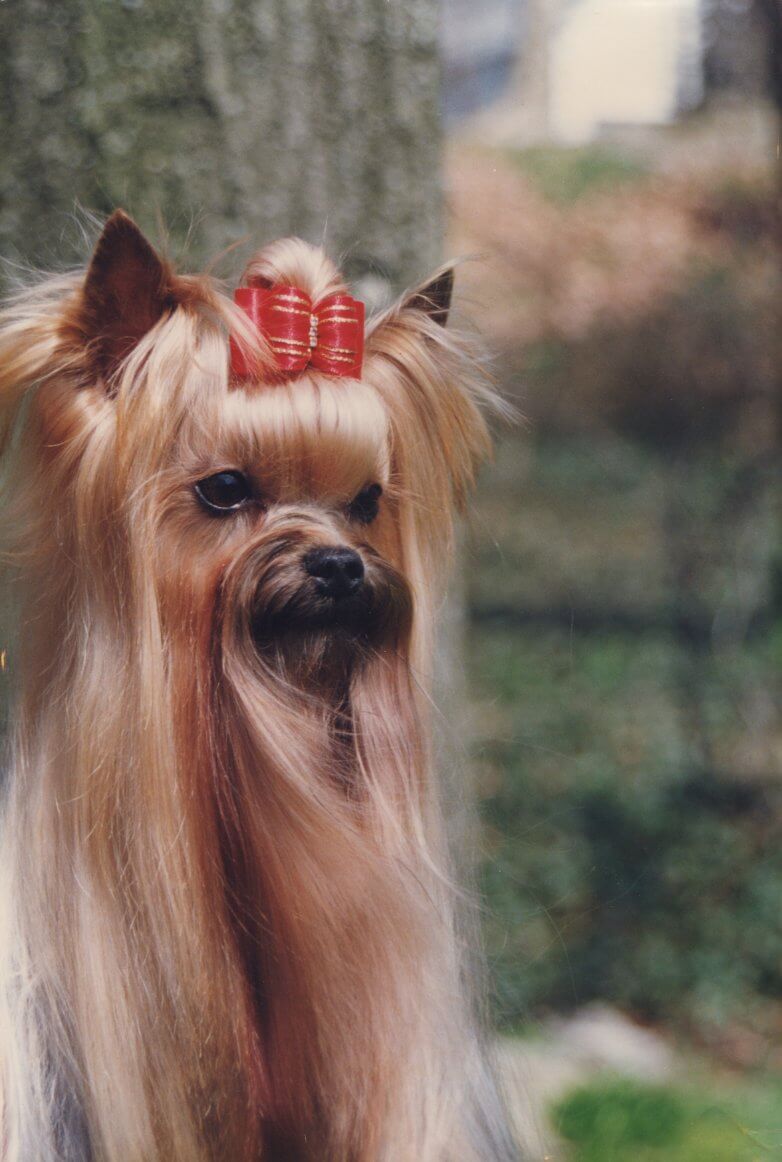
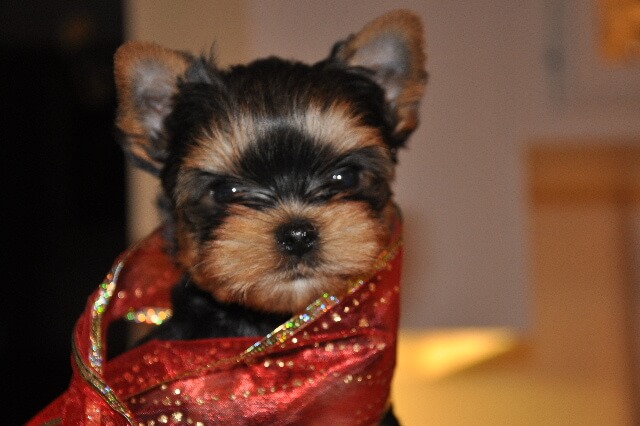
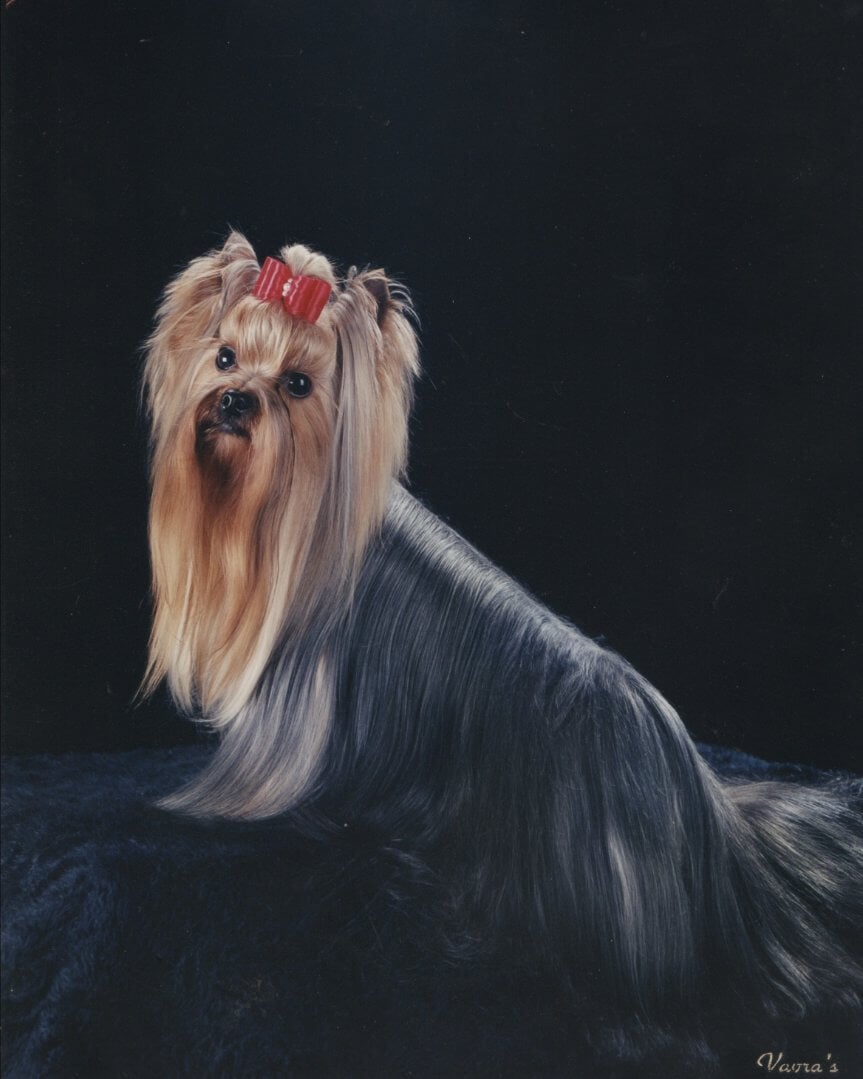
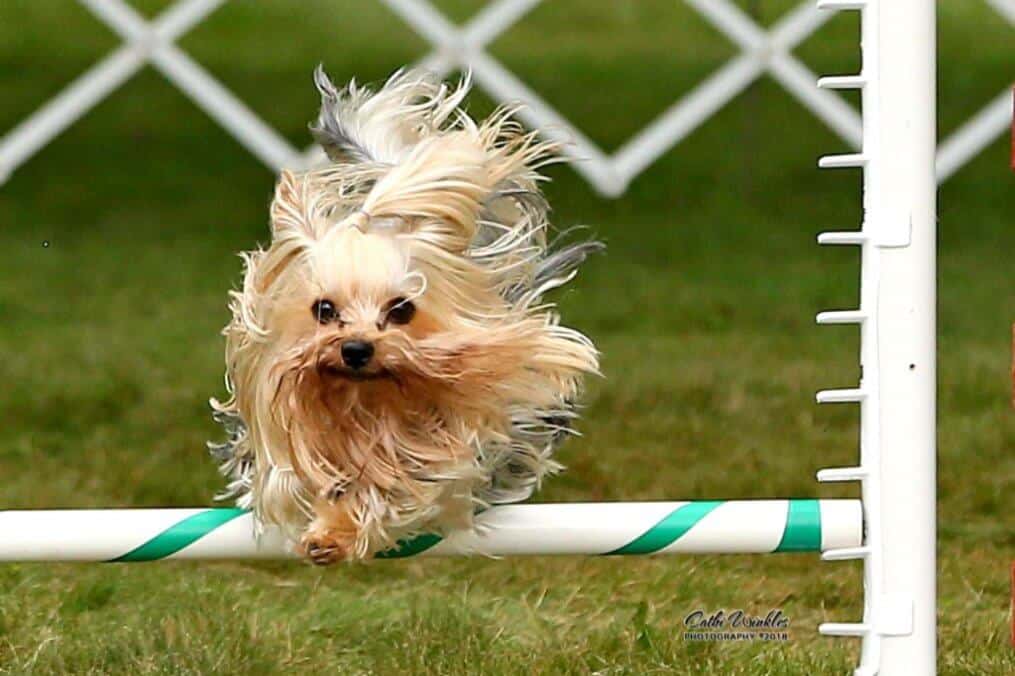
Yorkshire Terrier Club of America, Inc.
07/04/2025
The Yorkshire Terrier is named after County of Yorkshire in Northern England.
Huddersfield Ben (b.1865) is recognized as the “Father of the Breed.”
Toy
7 – 8 inches
7 pounds or less
12 – 15 years
| Country of Origin | County of Yorkshire, England (1865) |
|---|---|
| Bred For | Originally Bred for Hunting Vermin |
| Known For | Diminutive Size, Terrier Temperament |
| Popularity | High |
| Temperament | Yorkies are fiercely loyal and very smart. They have an excellent memory and think of themselves as a large dog in a small package. They can also be quite stubborn and require constant repetition in training. |
| Activities | Conformation Shows, Companion and Performance Events |
Go to: www.YTCA.org. Check out “History of the Yorkshire Terrier” by Joan Gordon.
7-8” at shoulders; No more than 7 pounds
The body is neat, compact and well proportioned. The dog’s high head carriage and confident manner should give the appearance of vigor and self importance.
Texture: A long-haired toy terrier whose blue and tan coat is parted on the face and from the base of the skull to the end of the tail, and hangs evenly and quite straight down each side of body. Hair is glossy, fine, and silky in texture.
Yorkshire Terrier Colors:
A Note About Color: Puppies are born black and tan and are normally darker in body color, showing an intermingling of black hair in the tan until they are matured. Color of hair on the body and richness of tan and legs are of prime importance in adult dogs, to which the following color requirements apply:
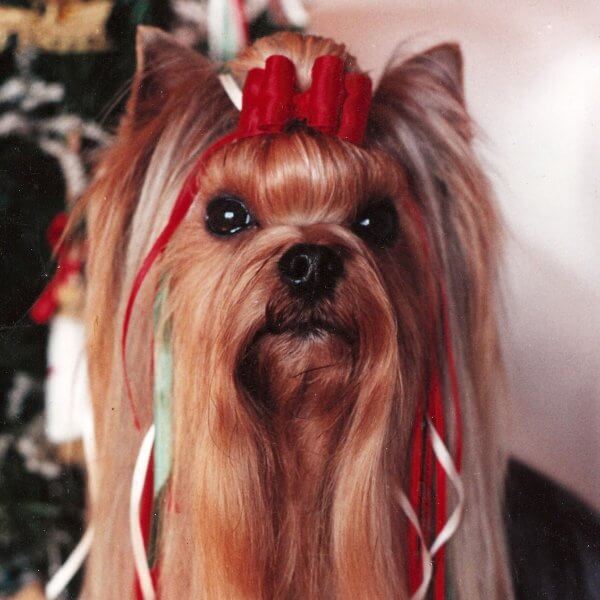
The tail is docked to a medium length and carried slightly higher than the level of the back.
The Yorkshire Terrier is generally a healthy breed.
Lifespan: 12-15 years
Conditions which may affect the breed are Liver Shunt, Microvascular Dysplasia, Protein-Losing Enteropathy, Encephalitis, Degenerative Myelopathy and Hyperuricosuria, which may be discussed with your breeder.
Very vocal. Needs a job to keep busy. Extremely loyal to the family and presents as a “guard” dog in spite of their size.
A well-balanced diet is most important. Table scraps should be kept to a bare minimum. There are particular foods created for this specific breed.
Yorkies are extremely intelligent with a very good memory. Training repetition is the best path to take. Obedience training is very valuable in creating a well-behaved family pet
Daily exercise is recommended, whether running in the yard or going on walks.
| Energy Level | Moderate |
|---|---|
| Exercise Requirements | Mental stimulation, retrieving toys, daily walks, plenty of sunshine for Vitamin D. No thick collars around the neck area. Retractable leashes are not favored for this breed. |
As mentioned earlier, daily brushing on a long coat is mandatory. Mats and knots can form if this is not done and become painful if close to the skin.
| Coat Type | Quality, texture, and quantity of coat are of prime importance. Hair is glossy, fine, and silky in texture. Coat on the body is moderately long and perfectly straight (not wavy). The fall on the head is long, tied with one bow in the center of the head. Hair on muzzle is very long. Hair should be trimmed short on the tips of the ears and may be trimmed on the feet to give them a neat appearance. |
|---|---|
| Grooming Requirements | Yorkies kept in long coat must be brushed daily. A mild tearless shampoo and moderate conditioner should be used once a week. Wrapping the coat is suggested to prevent breakage and promote growth; however, wraps should be checked daily. Pet Yorkies are easier to maintain in a “puppy cut,” which is short hair all over the body with a heart-shaped muzzle trim. |
They are extremely affectionate and very curious. Love to chase squirrels and bark at strangers. Very sociable and happy to cuddle up next to you.
Puppies should not be sold until they are at least 12 weeks of age and have had their initial vaccinations.
Conformation shows, Companion & Performance (Agility, Obedience, Earth Dog, FCAT) are some of the many areas Yorkies can compete in.
The Yorkshire Terrier is recognized by the world’s leading registries and kennel organizations, which categorize the breed into a specific Group based on its unique characteristics. This breed is recognized worldwide under the following Group designations:
| Organization | Group Designation |
|---|---|
| AKC (American Kennel Club) | Toy |
| CKC (Canadian Kennel Club) | Toys |
| ANKC (Australian National Kennel Council) | Toys |
| RKC (The Royal Kennel Club) | Toy |
| FCI (Fédération Cynologique Internationale) | Group 3: Terrier; Section 4: Toy Terriers |
The ideal Yorkshire Terrier is described by a Breed Standard that is approved by each of the world’s leading registries and kennel organizations. The Breed Standards for this breed may be found in the following links:
| Organization | Breed Standard |
|---|---|
| American Kennel Club | AKC Yorkshire Terrier Breed Standard |
| Canadian Kennel Club | CKC Yorkshire Terrier Breed Standard |
| Australian National Kennel Council | ANKC Yorkshire Terrier Breed Standard |
| The Royal Kennel Club | RKC Yorkshire Terrier Breed Standard |
| Fédération Cynologique Internationale | FCI Yorkshire Terrier Breed Standard |
Please click here for the names of all Regional Clubs.
Please visit YTCA Rescue Page for complete information.
There is no such thing as a teacup in any breed. Some litters produce a smaller puppy who is considered to be the “runt” of the litter. Extremely small Yorkies (2-3 lbs) are rare and never used for breeding by reputable breeders. They require more smaller meals per day and must be watched closely for any signs of distress.
YTCA.org has a list of approved breeders to contact and do not advertise in newspapers or the Internet. Reputable breeders will ask very detailed questions of anyone wishing to purchase a puppy (or adult dog) and will insist on meeting you in person, preferably in their own home.
All of the above listed information can be found on the AKC.org website and the YTCA.org website. Owning a Yorkie can be challenging, but they make you smile every day of their life!
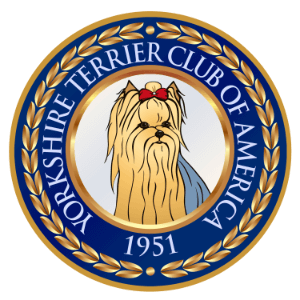
Founded in 1951, the Yorkshire Terrier Club of America (YTCA) serves as the official AKC Parent Club for the breed in the United States. With a mission centered on preservation, education, and responsible breeding, the YTCA is dedicated to protecting the integrity of the Yorkshire Terrier. The club supports breeders and owners alike in maintaining true breed type, sound health, and stable temperament, while fostering a spirit of camaraderie among its members. Always guided by the best interests of the breed, the YTCA continues to be a vital force in promoting the excellence and welfare of Yorkshire Terriers nationwide.
The best way to ensure a long and happy relationship with a purebred dog is to purchase one from a responsible breeder. Not sure where to begin?
Contact the National Parent Club’s Breeder Referral Program, which is listed on the AKC Breeder Referral Contacts page.
